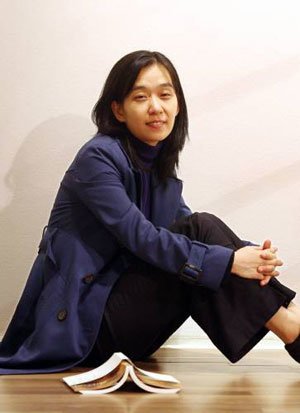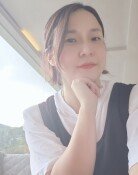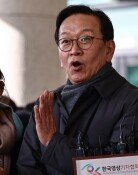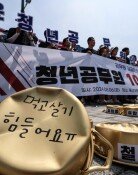Humans As Plants

During college, Han Kang (37) was fixated by a line in a book of poetry by Lee Sang: I believe that humans should be plants. She wondered why such a genius would want a strictly animal human to be so. Han tried to picture the era in which Lee Sang lived. It was the colonization period, where the future seemed unfathomable. Forced to live in a violent world, the sensitive poet had wanted humans to become plants.
All the words of violence, such as attack, battle, Jungle Laws and corruption, pertained to animals. Han tries to resist this animalistic nature in the novel series Vegetarian, published by Changbi Publishers. During an interview on October 31, she said, I wanted to show the extreme core of a dog-eat-dog world. Come to think of it, it had been five years since her last book. She kept busy by raising her son and teaching students as a creative writing professor at the Seoul Institute of the Arts.
She recalled, Out of all the chronicles, I wrote Vegetarian and Mongolian Spot by hand, not on a computer. The joints of her fingers had become too painful to type on a keyboard. Later her wrist would hurt so that she could not even write by hand, and it would be two years until she could sit in front of the computer again. She held a pen upside down and tapped at the keyboard.
I learned to type so fast that some people told me to go on television shows like Believe It or Not.
She wrote her book Tree Sparks using this method. Now she is able to type again with her fingers, but the 3-part novel Vegetarian captures her physical pain.
Vegetarian is the story of Yeong-hye, a woman who refuses to eat meat. When her father tries to force meat into her mouth, she slits her wrists on the spot. In the continuing Mongolian Spot, Yeong-hyes video artist brother-in-law becomes disillusioned with his video work and dreams of a new project, with Yeong-hye in mind as his new model. In Tree Sparks, Yeong-hyes sister looks after her in a mental institution, watching Yeong-hye in pity as she says she wants to become a tree branch.
Han felt the inhumane violence of the world so keenly that she chose to write about a woman who decides to become a plant. Some say that after two world wars, the word humane has become an insult. Humans strive for holiness, yet they also murder. I was in the graduating class of 89 and my hometown was Gwangju, so I experienced the violence of the eighties. Those days are gone, but somewhere theres still a war going on, and someone is dying of violence. I wrote of a human being who did not want to be human in this world.
Through this book, the author asks her readers if they want to be human and live as flesh and blood.
Mongolian Spot was winner of the Lee Sang Literature Award in 2005. When she published her award-winning book, she was still under contract and could not publish the rest of the series although she had finished them two years earlier. I never imagined that Mongolian Spot would be detached like that for so long. Now it feels like its found its place, its order. Although she calls her books her babies and feels exhausted after finishing a piece as if shes lived it, she chuckled, I find myself in front of the computer again because I want to write so much. Shes more well-known as writer Han Kang, rather than daughter of novelist Han Seung-won. Ive said what I wanted to say about plants, now Im going to move on to other material, she concluded in a calm yet resolute voice.
kimjy@donga.com
Headline News
- Pres. Yoon refuses impeachment documents for a week
- Debate over Lee’s participation causes friction in government consultative body
- Food and dining prices could increase en masse next year
- Foreign couple borrowed over $2 million to buy a Seoul house
- One-third of Japanese companies keep workers employed until 70







